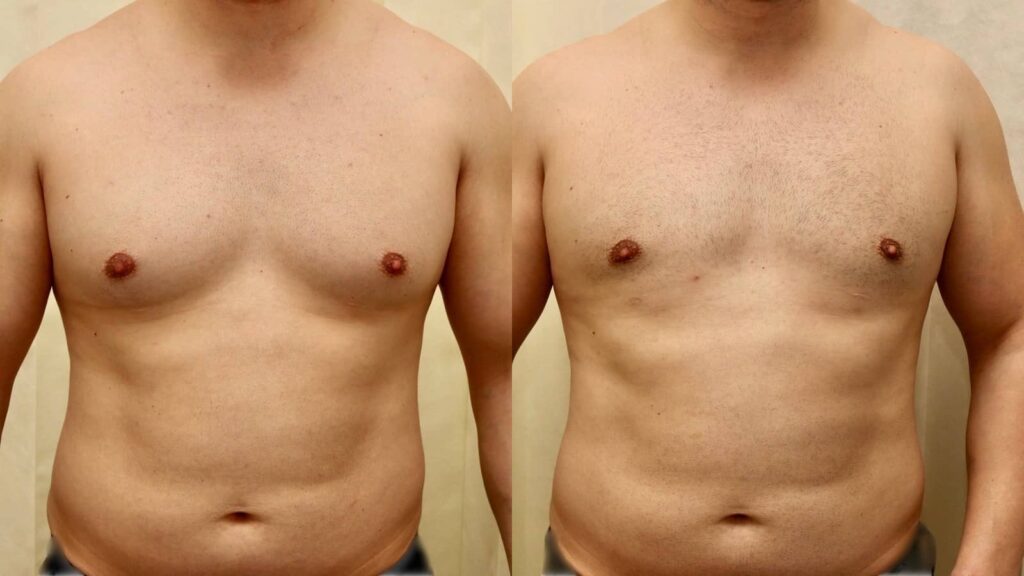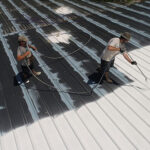Gynecomastia surgery is a common procedure that helps men reduce the size of their enlarged breast tissue, restoring a more masculine chest contour. While the surgery itself is a critical step in achieving the desired results, the recovery process plays an equally important role. Nutrition, in particular, can significantly impact the speed and quality of recovery after gynecomastia surgery in Dubai. This blog will explore the role of nutrition in the recovery process, focusing on how proper dietary choices can enhance healing and optimize the gynecomastia surgery before and after results.
Understanding Gynecomastia Surgery
Gynecomastia is the enlargement of breast tissue in men, often caused by hormonal imbalances, genetics, obesity, or the use of certain medications. Gynecomastia surgery involves the removal of excess fat and glandular tissue, sometimes combined with liposuction, to achieve a flatter, more contoured chest.
Given the sensitive nature of this surgery, it’s crucial to follow post-operative care instructions closely. This includes focusing on nutrition, which can help reduce inflammation, support tissue repair, and boost overall recovery.
The Importance of Nutrition in Post-Surgery Recovery
Nutrition is a key factor in the body’s healing process. After gynecomastia surgery in Dubai, your body requires specific nutrients to repair tissues, reduce swelling, and combat any infections that may arise. A well-balanced diet, rich in vitamins, minerals, and proteins, can make a significant difference in how quickly and effectively you recover.
1. Protein for Tissue Repair
Protein is the building block of tissue. After surgery, your body needs ample protein to repair and regenerate damaged tissues. Including lean proteins like chicken, fish, tofu, and legumes in your diet can provide your body with the essential amino acids necessary for recovery. Protein also plays a role in the production of collagen, which is crucial for skin elasticity and wound healing.
2. Vitamins and Minerals for Immune Support
Vitamins and minerals are essential for maintaining a strong immune system, which is vital in the post-operative period. Vitamin C, for example, is known for its role in collagen synthesis and wound healing. Citrus fruits, berries, and leafy greens are excellent sources of vitamin C. Zinc is another important mineral that aids in cell repair and immune function, found in foods like nuts, seeds, and whole grains.
3. Hydration for Reduced Swelling
Staying hydrated is essential after any surgery. Water helps flush out toxins, reduces swelling, and keeps the body functioning optimally. Aim to drink at least 8-10 glasses of water a day, and consider including hydrating foods like cucumbers, watermelon, and oranges in your diet.
Foods to Avoid During Recovery
Just as certain foods can enhance recovery, others can hinder it. After gynecomastia surgery in Dubai, it’s wise to avoid foods that can increase inflammation or interfere with healing.
1. Processed Foods
Processed foods are often high in unhealthy fats, sugars, and sodium, all of which can increase inflammation and delay healing. It’s best to avoid fast food, sugary snacks, and processed meats during your recovery period.
2. Alcohol
Alcohol can dehydrate the body and interfere with the immune system, making it harder for your body to fight off infections. Additionally, alcohol can interact with post-surgery medications, potentially causing adverse effects.
3. High-Sodium Foods
Excess sodium can lead to increased water retention, which may cause additional swelling around the surgical site. Reducing your intake of salty foods can help keep swelling to a minimum.
The Role of Supplements in Recovery
In some cases, your surgeon may recommend dietary supplements to ensure you’re getting enough of the essential nutrients needed for recovery. Common supplements that may be suggested include:
- Vitamin C: To promote collagen production and wound healing.
- Zinc: To support the immune system and cell repair.
- Omega-3 Fatty Acids: For their anti-inflammatory properties, which can help reduce swelling.
Before taking any supplements, always consult with your surgeon to ensure they won’t interfere with your medications or recovery process.
Consulting with the Best Plastic Surgeons in Dubai
Nutrition is just one aspect of recovery. Working with a skilled and experienced surgeon is equally important in achieving optimal gynecomastia surgery before and after results. The best plastic surgeons in Dubai will provide you with comprehensive post-operative care instructions, including dietary guidelines tailored to your specific needs.
Understanding the Cost of Gynecomastia Surgery in Dubai
When considering gynecomastia surgery cost in Dubai, it’s important to remember that the investment goes beyond the surgery itself. Quality post-operative care, including proper nutrition, plays a critical role in achieving the best possible outcome. While the cost may vary depending on the surgeon, clinic, and complexity of the procedure, prioritizing your recovery through nutrition and other recommended practices will help ensure that your investment yields lasting results.
Conclusion
Proper nutrition is a vital component of the recovery process following gynecomastia surgery in Dubai. By focusing on a balanced diet rich in protein, vitamins, and minerals, while avoiding inflammatory foods, you can enhance your body’s ability to heal and achieve the best gynecomastia surgery before and after results. Always consult with the best plastic surgeons in Dubai to receive personalized advice and guidance on how to support your recovery journey through nutrition.
Explore competitive pricing for gynecomastia surgery at Perfect Doctors Clinic in Dubai. Get expert treatment from leading surgeons dedicated to your well-being.



